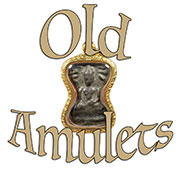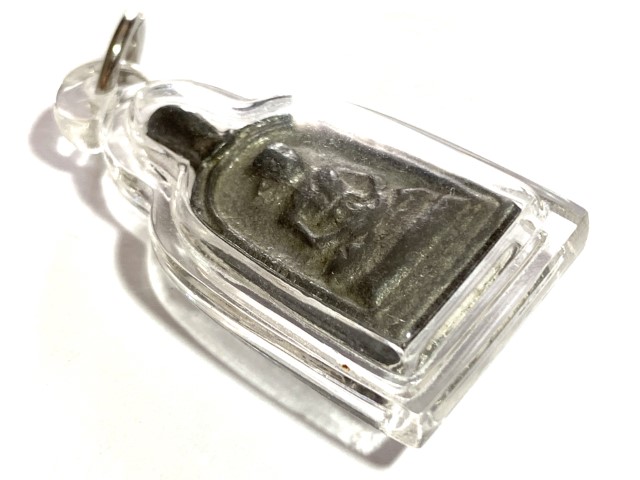Rian Job Luang Por Plai Nuea Ngern Code Wor-Gor-3 2543 BE Wat Kampaeng. Sacred Guru Monk Image of Luang Por Plai, in Solid Silver Magical Alchemical alloy made from ancient sacred silver artifacts, smelted with mercurial substance, with code Wor-Gor 3 stamp on rear face. Released in very small numbers, along with Bucha statues and Loi Ongk Roop Lor Statuettes, at Wat Kampaeng, in Buddha Abhisekha ceremony in 2534 BE, with the Abbot and lineage masters of Luang Por Plai present, to invoke the spirit and blessings of Luang Por Plai.
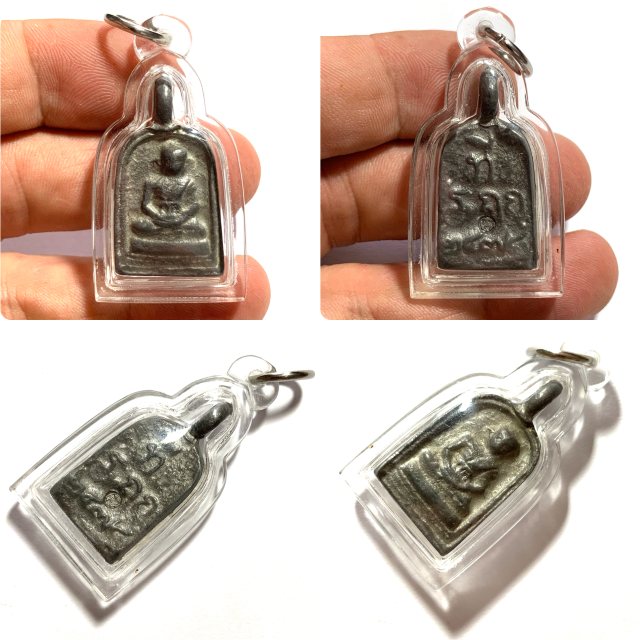
Already an extremely rare amulet to find, and a preferred alternative to the 2478 and 2485 ‘Lang Pha Cha’ cemetery restoration editions, and is a highly preferred rare amulet, which stands above the already highly popular (but easier to find) ‘Run Sam’ third edition Commemorative edition of 2555 BE. Many people mistake the Pim Wor Gor 3 amulet for the third edition (for indeed it was the third made), when in truth, the official ‘third edition’ ‘Run Sam’ series was released much later in 2555 BE.
The Rian Lor Job LP Plai Pim Gor Por 3 was released along with Loi Ongk Statuettes, and Bucha Statues of Luang Por Plai, and was issued in Nuea Tong Kam (solid gold) Nuea Ngern (solid silver), Nuea Nava (9 sacred metals), Nuea Ngern Yuang (ancient Chinese Silver), Nuea Tong Lueang (Brass), and Nuea Kong (Temple Gong).
The solid silver version of the Rian Lor Job Gor Por 3 was released in two versions, distinguished by the code stamp, of which only 16 amulets were stamped with the Wor-Gor 3 on the front face, with the remaining amulets in silver receiving the Wor-Gor 3 stamp on the rear face. The version with stamp on front face can hence not really be expected to encounter, for it is doubtful that any of the only 16 owners in the world would wish to part with it.
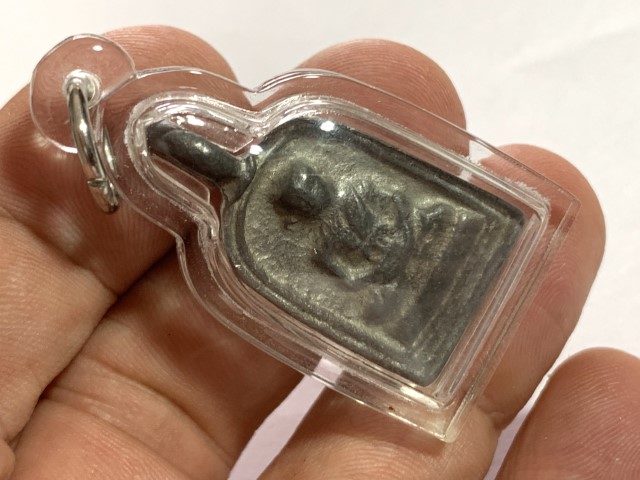
The amulets of Luang Por Plai of Wat Kampaeng (2408 – 2489 BE), are world renowned, for their powerful Kong Grapan Maha Ud magic, and highly preferred for their traditional classic style, as well as immensely revered for his Magical Powers. He was seen as an equal to the Great Luang Phu Iam of Wat Hnang.
The Rian Lor Luang Por Plai is one of the ‘Rian Yord Niyom’ preferred amulets of true appreciation society collectors and of course, the prized possession for protection and auspicious blessing, for the devotees of LP Plai. It was made in various editions during Luang Por Plai’s lifetime. and is sometimes remade on rare occasions to this day, as a ‘Yorn Yuk’ memorial replica amulet, by the temple of Wat Kampaeng, due to its immense fame and high demand from devotees.
Below; Code Wor-Gor 3 embossed on rear face of amulet
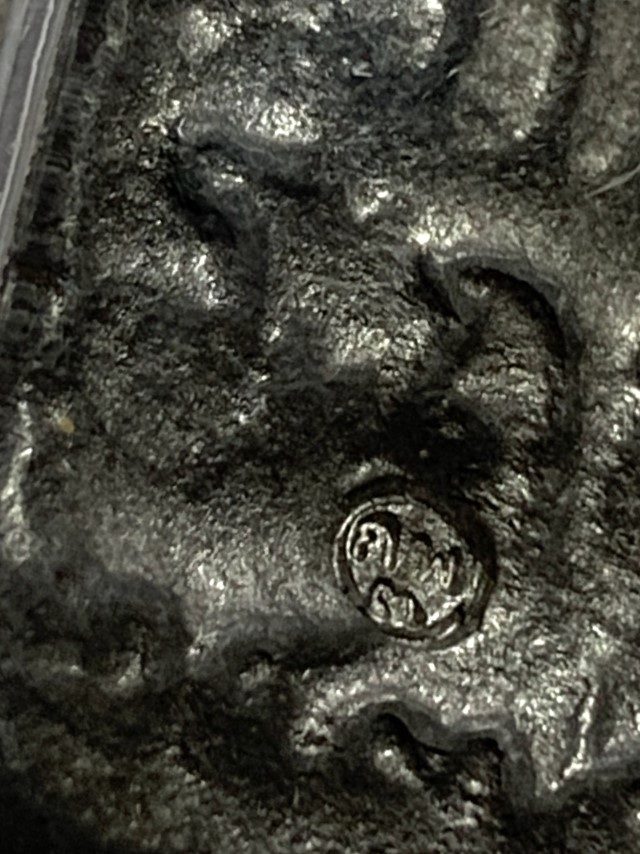
This is because the Rian Lor amulets of Luang Por Plai carry so many stories of Miracles with them from the many occurrences over the decades. Hence, many people seek to wear one, despite the elevated price of many of his amulets. People’s belief in the protective power of all editions of the Rian Lor Luang Por Plai. Luang Por Plai was lovingly known in his day by devotees as ‘Khun Pol Haeng Fang Tonburi” which insinuates his immense power of Maha Amnaj, Maha Ud,Grapan and Klaew Klaad protective Magic.
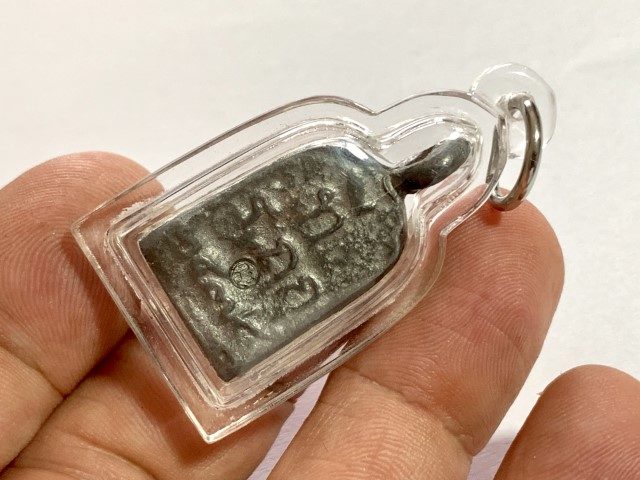
Luang Por Plai was born in Bang Bon in Thonburi on a Tuesday in the year 2408 BE, the son of Mr Maekh and Mrs Hem (Surname; Tong Hluea). He had 9 siblings and helped his parents on the farm as a child. There came a time when the great Luang Por Kong of Wat Lawaek Pasi Jaroen came, to finance and perform restorations at the temple of Wat Kampaeng (at that time still named ‘Wat Sawang Arom). Luang Por Kong built a school-room to teach the local children. Luang Por Plai’s father thus took him to be educated under the tutelage of Luang Por Kong.
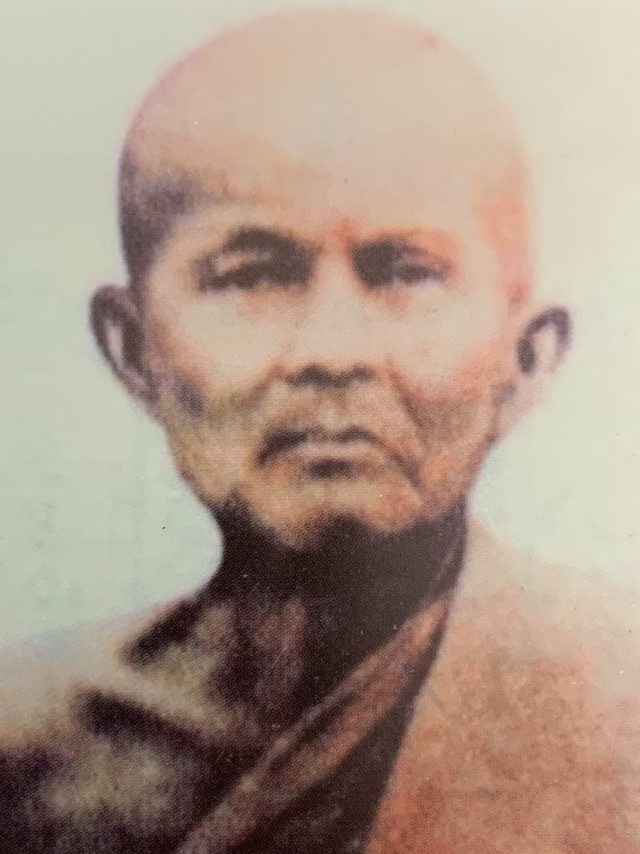
Luang Por Plai
Luang Por Plai had to both work on the farm and go to school, so was not always able to attend school every day, but with great effort and the fact that he was an intelligent child, he managed to advance faster than all the other children in his class.
This made Luang Por Kong of course love him very much for his great effort, and forged a bond between the teacher and the student. When Luang Por Plai reached the age of 20, he then went to Wat Kampaeng and was Ordained by Luang Por Kong himself as Upachaya ordaining Officer, and given the Ordained Surname of ‘Jantasaro’.
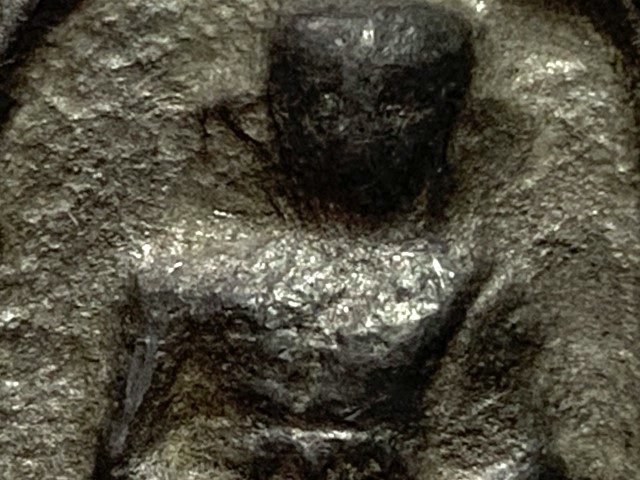
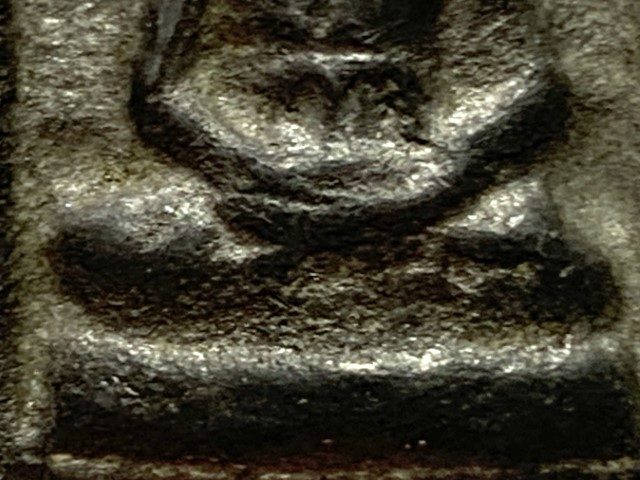
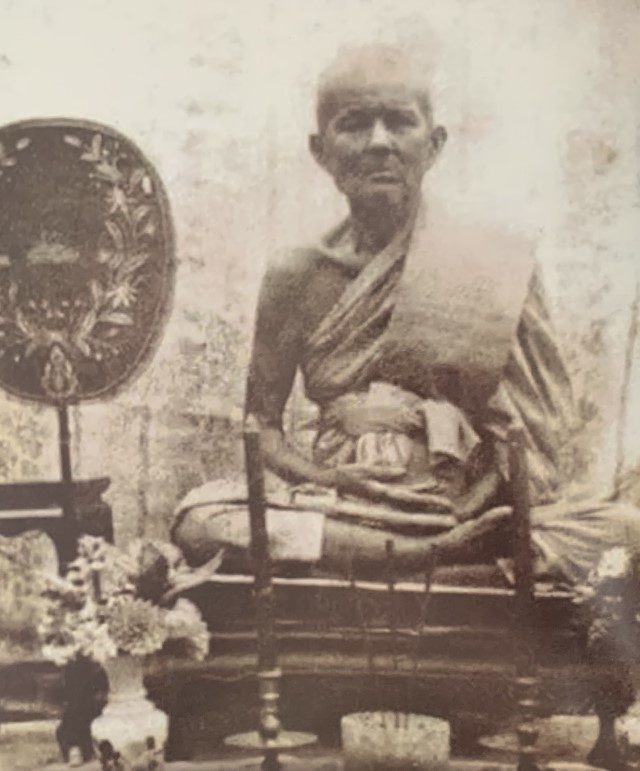
Luang Por Plai would help Luang Por Kong to teach the Samaneras and Orphans in the school and help with temple duties, until in the year 2430 BE, Luang Por Kong had reason to disrobe, and Luang Por Plai was asked to become the next Abbot of the temple.
Luang Por Plai continued to teach Samaneras and even visit other temples to teach, and even called in teachers from many different apprenticeship professions to teach the local children abilities that would give them a profession when they grew up, and not have to worry for sustenance.
Below; Buddha-Rupa Inside the Shrine Room of Wat Kampaeng.
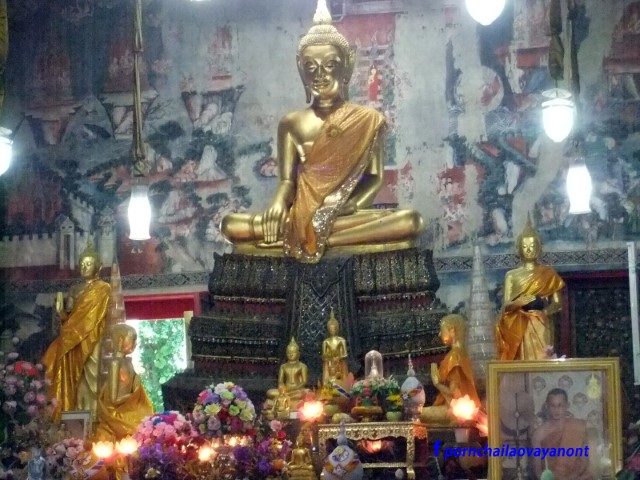
Luang Por Plai released his first official edition of the Rian Lor alchemical metal Guru Monk coin amulets in the year 2478 BE, with three main models, as a Pim ha Liam 5 sided amulet, a Roop Khai oval shaped, and a Rian Job rounded arched shape.
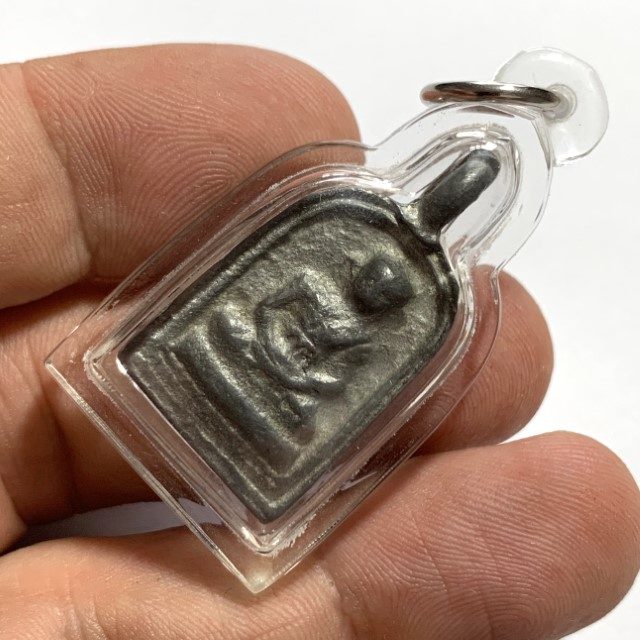
Luang Por Plai was known to be possessed with powerful mastery of Wicha Akom, which he had received from Luang Por Kong, which was revealed to be extremely powerful after he began to release his alchemical metal Rian Lor Boran amulets.
In the year 2485 BE, a terrible storm flooded and destroyed the cemetery and funeral installations of the temple, so Luang Por Plai decided to raise funds with the making another edition, of the Rian Lor Boran, and repaired the cemetery, and built new installations.
During the ceremony, it was not possible to light any fireworks, and many devotees found that their guns were not able to shoot. This then made the ceremony legendary for the miraculous Maha Ud Gunstopper Magic for which Luang Por Plai’s amulets are so renowned.
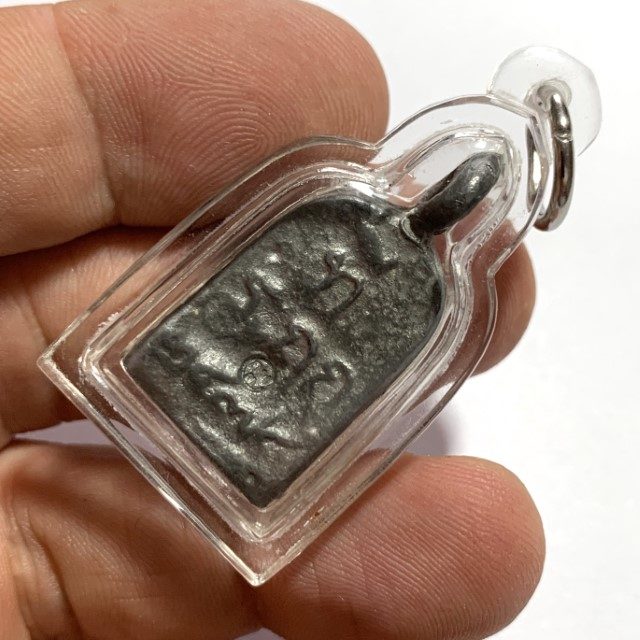
Luang Por Plai passed away in the year 2489 BE. Since his passing, on special occasions of commemoration, an edition of Luang Por Plai amulets is released very rarely at Wat Kampaeng, all of which are highly prized collectors items and reside in the glass cases of personal museums, and around the necks of old local devotees and of course, wealthier collectors.
